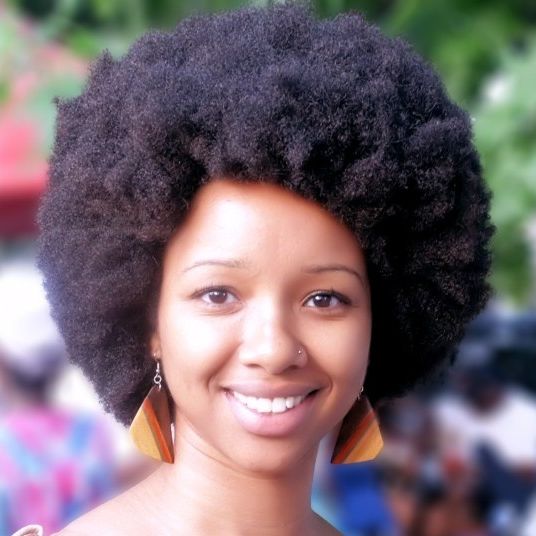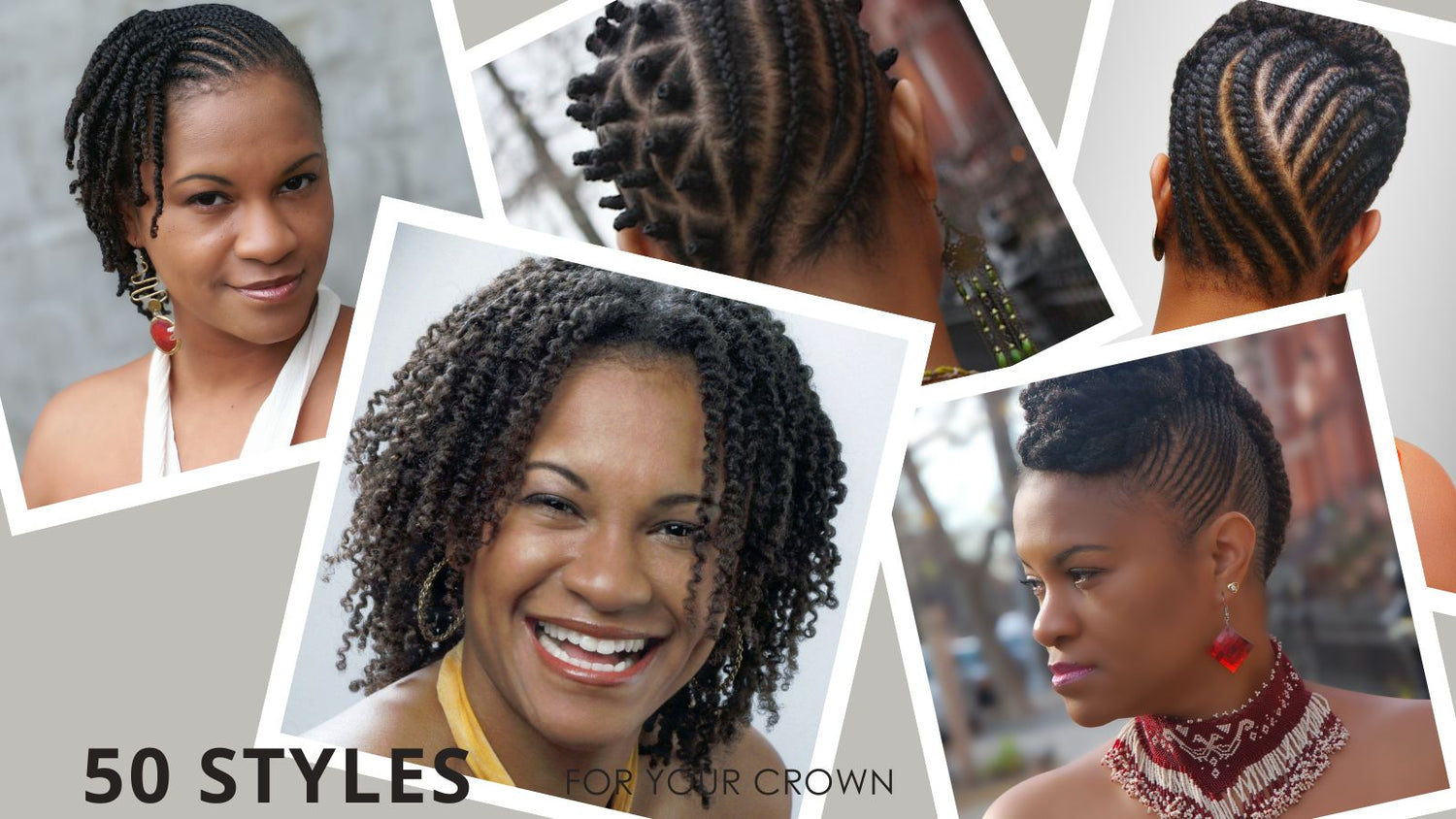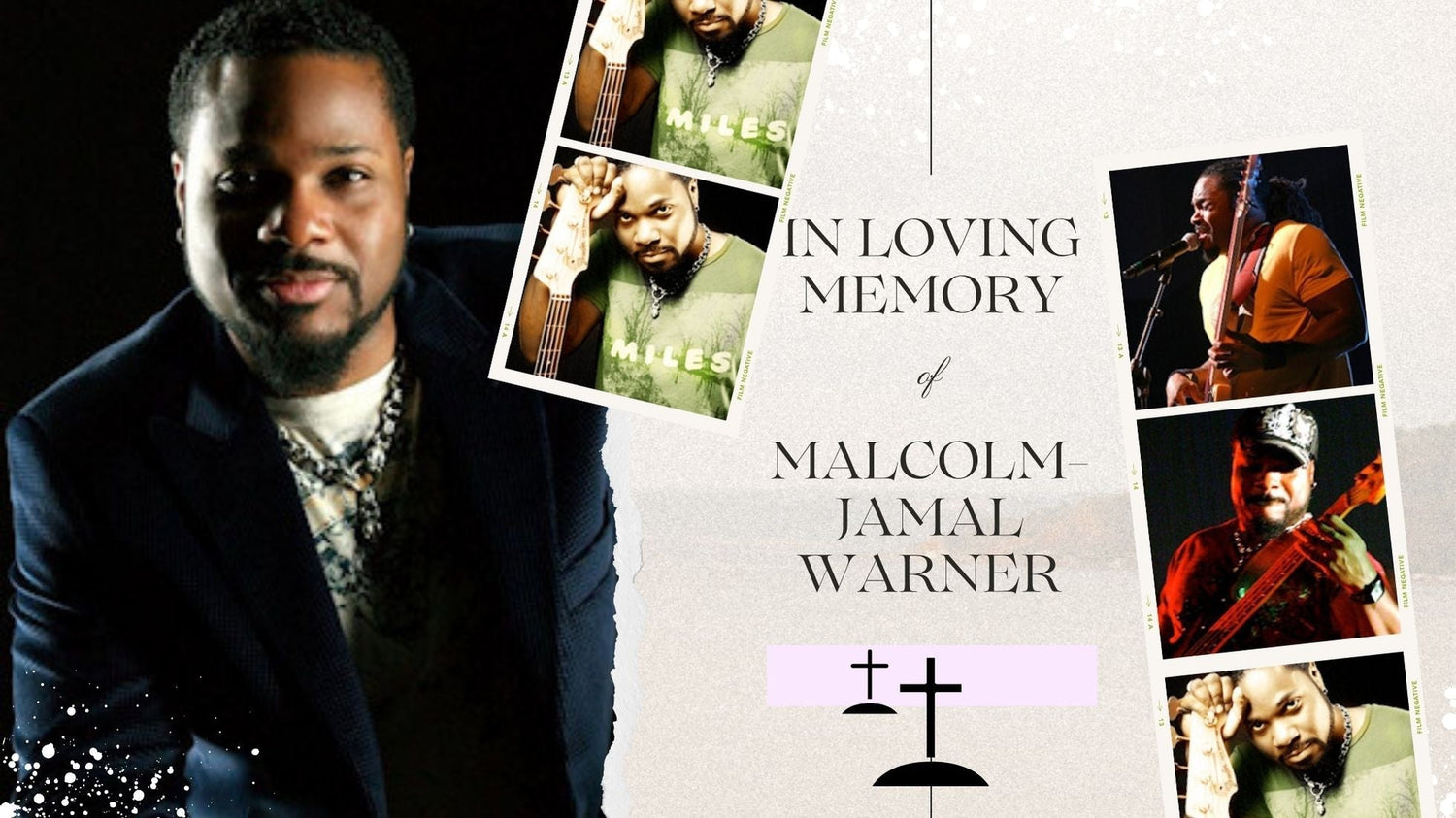
The Afro of the 2000's
If Angela Davis’ hair was the Afro of the 60's, Lurie Daniel Favors' Afro has got to be the one of the 2000's. This gorgeous woman's thick dense hair captured bloggers' attention in the earliest days of Social Media, right when the online natural hair revolution was just getting started.
The legendary photo featuring Lurie’s Afro was captured by Liong in 2005 at the International African Arts Festival in Brooklyn, NY during a time when it wasn't really hip to be natural. It might still pose a problem for many today but back then, tightly coiled African strands were definitely not to be worn out in public. This was true according to White standards and it was also true according to an unwritten Black hair etiquette which basically kept Black follicles in bondage. So much so that many referred to African strands as "slave hair".
"Slave Hair" resembles Pain
On the surface the connection may seem clear. No one wants an out of date hairstyle that also reminds them of the horrific days of slavery but the rejection of natural hair lies much deeper than that.
Even if slaves working the plantations had time for grooming, their hair didn't stand a chance of even looking remotely decent while they were laboring on the plantations in the heat, day in and day out. So yes, unkempt kinky strands can be a reminder of slavery. However it is the grief connected to that image of an African deprived of all human dignity slave-laboring the fields just to survive, that still hurts Black people at their core today.
On the question "Would you pick cotton for $250 an hour" recently posted on Facebook, A sizeable majority of responders said yes but a remarkable percentage of the responses were more than noteworthy. One person commented, "Naw, I'm a house heffa not a field darkie" while one Youtuber created a 12 minute video trying to explain that picking cotton, no matter how much you are offered, is still slave labor if you are a descendent of slaves.

Lurie Speaking about her Book at Brooklyn College
These are just two examples that show how the inhumane legacy of slavery still impacts the present more than a century and a half later. This is true, even if the people didn't experience the brutalities themselves. Calling natural hair slave hair, is part of that legacy.
The spastic commentary on Gabrielle Douglas' roots sticking out from under her weave after she just won the gold medal as the first Black Gymnast at the Olympics, is just one example of how some Black people respond to natural hair. The petition to call on Beyonce to comb her daughter Blue Ivy's hair, is another.
So as you can imagine when the photo of Lurie's impenetrable afro was posted on going-natural.com, the portrait was instantly snatched from the groundbreaking social web and networking site, only to spark intense debate in the natural hair blogosphere. So much so that the photo travelled on websites around the world and found its way back to Lurie who had no idea that her fro was the subject of a vigorous discussion.
Lurie Daniel Favors
Lurie Daniel Favors, a New York University School of Law graduate and founder of the Daniel Favors Law PLLC firm in Manhattan, was not one to shy away from a debate. As a wife, mother, Director of Breaking the Cycle Consulting and co-founder of Sankofa Community Empowerment, Lurie felt compelled to weigh in on the "too nappy to be beautiful" debate.
You see even in the natural hair movement, especially in the early days, the good hair/bad hair abscess is still alive. Curly hair, hair that is racially mixed is seen as good hair. Bad hair is hair with very tight African coils—hair that most are taught to despise. Lurie, as beautiful as she looks in that picture, still had the type of hair that was called bad hair yet she wore it with pride. This dichotomy made many people feel quite uncomfortable.
Black follicles are paying the price
The injury connected to natural hair runs deeper than we realize. This unresolved pain literally kills Black follicles but we hardly pay attention even if we see proof of it every day. Not only do African Americans use the most hazardous chemicals available in the beauty isle on their hair regularly, we don't deal with the ramifications at all. Hair breakage, rampant in the black community, is covered up with weaves making Black women the largest spenders on hair products.
The numbers speak volumes. Black women spent three times as much on hair care products yet they disproportionately suffer from hair loss, far more than any other ethnic group. In his article "Relaxers can cause African American Hair loss" Damien McNamara quotes Dr. Miller, a dermatologist at the Milton S. Hershey Medical Center, who states that up to 73% of African American women suffer from relaxer induced alopecia which is hair loss related chemical straighteners.
Afro State of Mind
Lurie may not have been aware of the numbers at the time but as an experienced nappy head with an “Afro state of mind,” the attorney was more than ready to weigh in on the controversy that her afro started.
Introducing herself as the girl in the photo with the tight curls, Lurie joined the debate with a response that even baffled her own husband, Brian. Immediately after reading one of her structurally stated arguments on the comments debating tightly coiled natural hair, he recognized that Lurie’s replies were actually more like chapters of a book. As a supporting husband with motivational spirit by nature, Brian inspired Lurie to write a book and the rest is history.
Afro State of Mind; Memories of a Nappy Headed Black Girl, published in 2013 with the picture of Lurie sporting the most-debated-online-Afro on the cover, is making its way to the top as a bestseller in the Black beauty section. The book is considered a must read even for women who will never even contemplate going natural because more than dealing with hair care, products or hairstyles, Lurie's book consciously connects every stage of going natural with an historical part of Black history.
An exceptional publication that helps African American women understand where much of the Black hair controversy comes from and why they feel about their hair the way that they do. It's a book that reaches beyond the surface of beauty revealing deeper layers that can help start the healing process of traumatized Black follicles.







1 comment
BEAUTIFUL hair—excellent read. I hope to see the day when ALL black women with God-created, kinky hair are armed with love, understanding and pride of our hair.